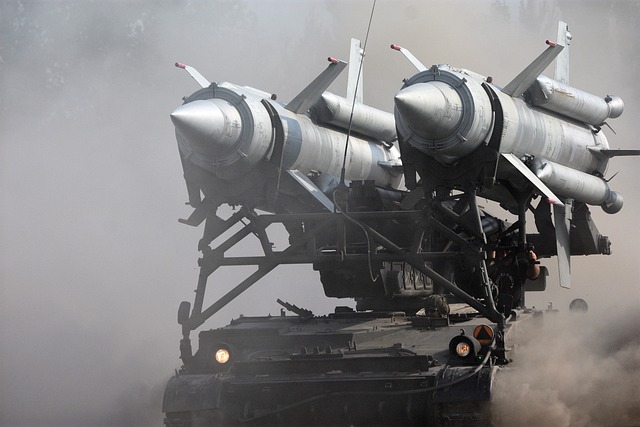The growing intersection of artificial intelligence and military technology is pushing the boundaries of what is possible—and what is permissible—in warfare. Autonomous weapons, often referred to as “killer robots,” have shifted from the realm of science fiction into a sobering reality. These systems are capable of selecting and attacking targets without direct human intervention, raising profound questions about ethics, feasibility, and global security.
But how real is the threat of autonomous weapons? Are we truly on the brink of a future where machines make life-and-death decisions, or is the alarm unwarranted? This article aims to explore this issue thoroughly, providing valuable insights for tech enthusiasts, policymakers, and AI researchers alike.
What Are Autonomous Weapons?
Autonomous weapons are AI-powered systems with the ability to engage targets without human control. Unlike drones, which rely on human operators for decision-making, these systems can independently assess situations and determine whether to deploy lethal force.
Current Status of Autonomous Weapons
Though fully autonomous weapons are not yet in widespread use, prototypes and semi-autonomous systems already exist. For instance, the United States, Russia, and China are actively exploring this space, funding programs that integrate AI into existing defense systems. Current examples include:
- Israel’s Harpy Drone: Designed to autonomously detect and destroy enemy radar systems.
- The SGR-A1 Sentry Gun by South Korea: Equipped with AI to locate and track intruders along the Korean Demilitarized Zone.
While these systems are primarily semi-autonomous, they indicate how quickly we are advancing toward fully autonomous warfare capabilities.
The Ethical Concerns
Moral Implications
At the heart of the debate lies the question of morality. Should machines have the authority to make decisions that can take a human life? Many ethicists argue that autonomous weapons pose a fundamental challenge to the principles of human dignity and accountability. When a machine kills, who bears the responsibility? The programmer? The manufacturer? The deploying country?
The Risk of Error
AI, while powerful, is not immune to errors. Autonomous systems may misidentify targets, leading to civilian casualties. Algorithmic bias, often baked into AI models consumed by flawed data, could disproportionately harm specific groups. This amplifies ethical concerns, as human oversight is removed from these high-stakes situations.
Dehumanization of Warfare
Autonomous weapons risk dehumanizing conflict further. By distancing humans from the act of killing, they could make nations more willing to engage in warfare, believing it to be low-consequence. This commodification of life is one of the harshest criticisms of autonomous military technology.
Technological Feasibility
Where Are We Now?
Current AI capabilities are impressive but far from perfect. Machine learning systems excel at recognizing patterns and processing large datasets but struggle with nuance and context. For example:
- Image recognition systems can identify objects but may misinterpret shadows, reflections, or other anomalies.
- Natural language processing is advancing, but context-based decision-making remains a major challenge.
Fully autonomous systems capable of independent, ethical decisions require significant strides in technology, including advancements in interpretability and robustness. However, rapid progress in AI and machine learning suggests that this gap may close sooner than expected.
Reliability Concerns
One of the biggest hurdles is the reliability of autonomous systems in unpredictable environments. Variables like weather, electromagnetic interference, or unforeseen battlefield complexities can disrupt sensor inputs and machine functionality, leading to catastrophic outcomes.
Geopolitical Implications
Impact on Global Security
A key concern is the escalation of arms races. The introduction of autonomous weapons could destabilize global security as competing nations rush to develop and deploy their versions. Such a race increases the likelihood of proliferation and misuse, even by non-state actors or rogue nations.
Deterrence or Provocation?
Advocates suggest that autonomous weapons could serve as a deterrent, reducing human casualties in conflict. However, critics argue that their accessibility and lethality may provoke preemptive strikes, leading to a breakdown in global stability.
The Risk of Proliferation
Like other high-tech military advancements, autonomous systems are likely to proliferate. Once different nations and even non-state actors acquire this technology, the potential for rogue uses—such as targeted assassinations or acts of terrorism—becomes very real.
Regulation and Control
International Efforts
Recognizing the risks, international organizations and NGOs are pushing for regulation. The Campaign to Stop Killer Robots, for example, advocates for a preemptive ban on fully autonomous weapons. Similarly, the United Nations is hosting deliberations aimed at formulating global standards.
Regulatory Challenges
Unfortunately, creating effective global agreements is a challenging task:
- Some nations argue that regulation stifles technological innovation and defensive capabilities.
- Accountability mechanisms are hard to establish, as AI technology often resides in a legal gray area.
Possible Solutions
- Prevention of Deployment:
Advocate for international treaties prohibiting the deployment of fully autonomous weapons.
- Human-in-the-Loop Standards:
Establish requirements ensuring human control over life-and-death decisions in military AI systems.
- Ethics Training:
Equip developers and engineers with guidelines on ethical AI to prevent the release of harmful products.
Why This Issue Demands Our Urgent Attention
The potential risks associated with autonomous weapons far outweigh their advantages. While it is clear that technological progress will continue, we must ensure that ethical and legal frameworks keep pace with these rapid advancements. Failing to act proactively may lead us into a future where the use of autonomous weapons is normalized, diminishing human accountability and jeopardizing global security.
Whether you’re a technologist, policymaker, or concerned global citizen, your voice matters in shaping the direction of this critical issue. To stay informed and play a role in discussions on autonomous weapons, contribute to forums, join advocacy campaigns, or even explore how responsible AI development can address these challenges directly within your field of work.

